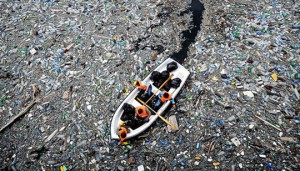With the ‘Ek Soch’ columns ‘www.bms.co.in’ brings to you one tiny thought for today which will help you make a difference. It isn’t a class on moral values, or a Business Ethics lecture. It is just one very tiny and interesting thought that will be very simple to imbibe and help your conscience on a huge level.
Today’s ‘Ek Soch’ is that we won’t ‘use plastic bags’! Easier said than done, we all know; but do you know that the implications of the one time you asked for a plastic?
Have a look at the top 10 effects of using Plastic Bags:
1. Environmental Damage
Plastic bags have been known to cause a lot of environmental damage. A single plastic bag can take up to 1000 years, to decay completely. This makes the bags stay in environments longer, in turn leading to great build-up on the natural landscape (much more than degradable materials like paper). In other words, the more plastic bags you use, the greater the chances of environmental damage.
2. Threat To Animal Life
As per Marrickville Council of Australia, as many as 100,000 whales, turtles and birds die have been reported to die every year, mainly because of plastic in their environment. Plastic bags not only have adverse effects on our natural habitats, but have also been found to be responsible for the death of many animals, mainly on account of the suffocation encountered on eating them.
3. Suffocation
Not only animals, infants and young children have also been reported to have lost their life, on account of plastic bags. Since plastic bags are thin and airtight as well, children often end up blocking their mouths and nostrils with them. In case they are not being monitored by an adult, this leads to suffocation and, in some cases, even death.
4. Pollution
Plastic bags are extremely durable. In case you are thinking of this as an advantage, just bring to mind an image of the huge landfill that you visited on the city outskirts, the other day. In most probability, majority of the rubbish present there will comprise of plastic bags only. In other words, plastic bags have led to a great increase in the pollution levels.
5. Fumes
Since plastic bags are not bio-degradable, the only way to get rid of them is to burn them up. Though lighting a match to them is easy, it has more than its fair share of disadvantages. The biggest of them is that smoldering plastics can release toxic fumes into the environment, in turn taking the air pollution to much higher levels.
6. Non-renewable
One of the main disadvantages of plastic bags is that they are not renewable. The reason behind this is that they are made of petrochemicals, a non-renewable source of energy. They can be recycled, but not as easily as paper bags. Plastic bags can last for as much as hundred of years. In other words, long after you are no more, the plastic bag used by you will be in existence.
7. Petroleum Base
Polyethylene bags are the most common plastic bags. These bags are made from crude oil and natural gas according to the New York Times. Both oil and gas are nonrenewable energy sources, meaning they are in limited supply. The mining and manufacturing process of fossil fuels create pollution.
8. Non-Biodegradable
Estimates of the number of plastic bags used around the world each year vary in range from 100 million to a trillion according to a New York Times article. Since only a small portion of these bags is recycled, many plastic bags are left to enter the waste stream. The bags will likely take about 1,000 years to decompose. Because such a large number of bags are produced and it takes a long time for them to decompose, the plastic bags that are thrown away create a lot of waste in the landfills on top of the trash that may be inside of them.
9. Durability
A plastic bag is most often usable once or twice if the contents placed into it aren’t too heavy. When heavy items, such as canned foods or bottles, are placed in the bag, the handles are more likely to break. Double-bagging the goods is a common practice, but this practice uses more bags and creates more trash.
10. Produces a highly toxic fume when burnt
When there are no other means of getting rid of the plastic, it is burnt. This process lets out highly toxic fume which creates enormous air pollution along with the severe damage caused to the residents of the nearby area’s who inhale such fumes.






2 Comments